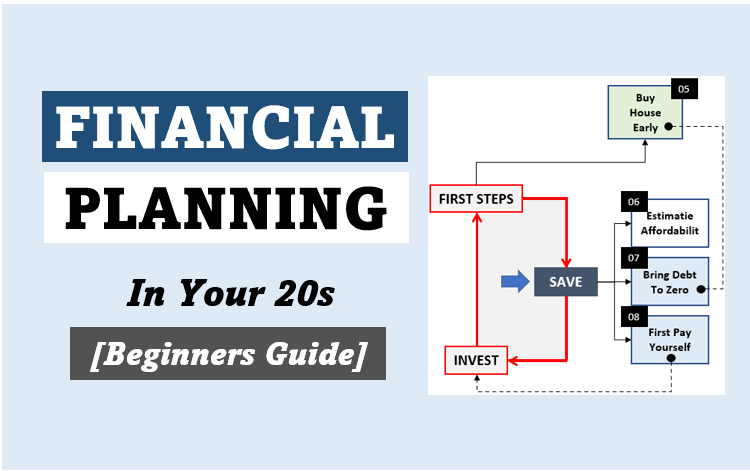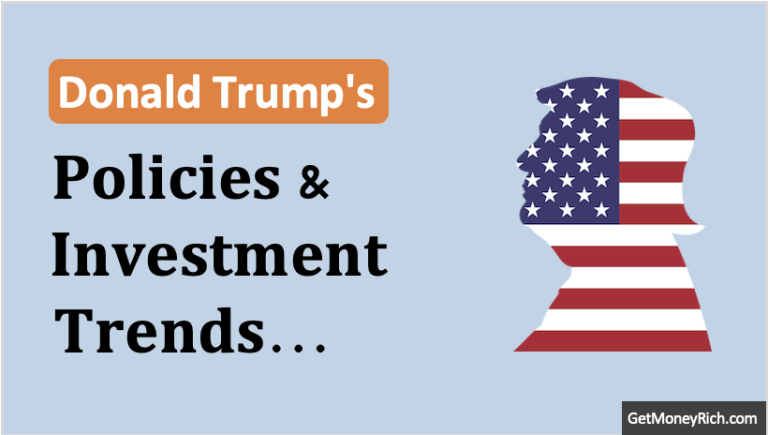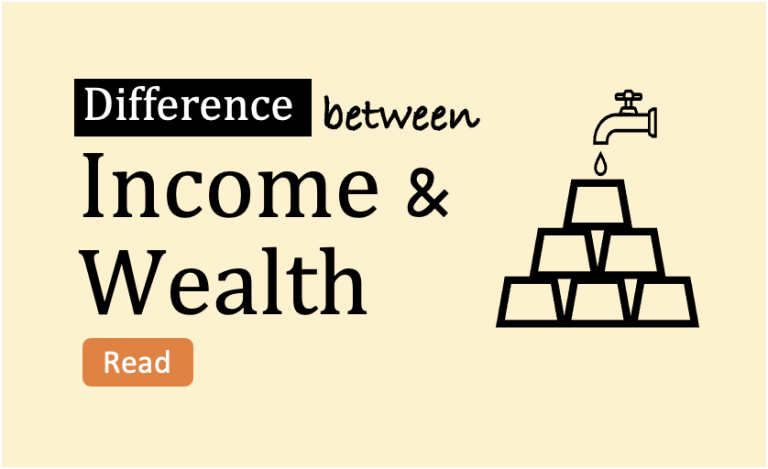In term of money management, what financial gurus recommend for we common men?
In most cases, people do not know what it means by money management?
In this article, we will see basic rules which one must follow for effective handling of money.
How differently you should manage your personal finance?
The way we handle our money makes us financially superior or inferior.
Lets break the code…
Today is the time to start thinking about better management of personal finance.
So, where to start? What it means by better personal finance management?
Financial guru recommends keeping it simple:
- Large income,
- Zero debt, and
- Balanced spending.
This should be our boundary line based on which money must be handled.
A lot is already written about personal finance management.
Investment gurus keep giving new and innovative recommendations to better ones finances.
But in this post, I would stick to the basics.
Idea is to make it visible to my readers those fundamental aspects of personal finance based on which one can build substantial wealth.
There are hundreds of people who want recommendations of financial gurus to build a strong financial base.
But problem is, people do not know how to execute the steps.
Often, common men do not properly understand the advice of investment guru.
This is the reason why, though so many investment gurus keeps delivering advices, it hardly percolates down to common men.
People who are rich can afford personal financial managers.
Hence for rich people implementing personal financial recommendations become easier.
But common men cannot afford such personalised advisers.
They also find it hard to ‘interpret and apply’ the recommendations of financial gurus.
Hence penetration of financial recommendations is limited in middle class.
I am writing this post for people who have limited financial know-how, but would like to improve their finances in year 2017.
As I have said earlier, the fundamentals of personal finance are very simple.
The concept that I personally apply in my life is “being debt free” and having “multiple income sources”.
The power of these two fundamentals are far more than we can imagine. Lets see how…
What Financial Gurus Recommends…
Allow me to elaborate more about the concepts that I follow and know that it works.
I am no financial guru, but I know that these recommendations will work.
The recommendations are understandable and implementable.
#1. Build at least three source of Income
Generally people rely on only one income source. Its easy to focus on one work.
It is difficult for people to do multitasking.
Hence majority has only one income source.
But people who are financially well off never depend on only one income source.
Multitasking is not easy, we know, so why I am hinting towards multitasking?
Yes, multitaskers are elite people.
I will not recommend trying to multitask unless one is a habitual multitasker.
What is a more implementable recommendation is generation of ‘passive income’.
How passive income is different? It is different because it continues to flow-in automatically.
People do not need to work to generate passive income.
If done properly, passive income can become an excellent alternative source of income.
How to build passive income source?
One can open a fixed deposit and start earning monthly income.
Though the level of income will be low but this investment is very secure.
In India, for every Rs.1,000 put in fixed deposit one can earn Rs.6 as monthly income.
Do not worry about the low yields.
Here fixed deposit is not opened just to earn returns. The purpose is much bigger.
The goal is to start building a habit of earning more than one source of income.
No matter how small is the second income source; let that income flow-in each month.
Take special attention to visualise and raise a toast every time the second income drips-in.
If possible keep adding to the FD once every 3 months.
Idea is to keep oneself busy and be ‘involved’ with your second source of income always.
Give it your full attention.
Imagine yourself earning passing income from FD which is more than your paycheck of job.
#2. Don’t buy things for which you can’t pay in cash right away
This is the simplest and the most implementable of all financial guru recommendations.
It asks people to first check the cash before spending.
Sometimes people confuse this rule as one, which says, “spend only in cash”.
But it’s not like this.
To explain this rule, lets see some examples:
Lets imagine a hypothetical person Jack who has $2,000 in savings.
Suppose Jack went to a grocery shop to buy monthly stuff.
After the purchase the bill was $75.
Though the bill amount was less, still Jack asked himself, can I buy this grocery in cash?
As he had more than 25 times the bill amount in savings, the answer was an easy Yes.
Next Jack went to a fashion store to buy a dress for his wife.
After selecting the dress the bill was $160.
The bill amount was only reasonable, still Jack asked himself, can I buy this dress in cash?
As he had more than 12 times the bill amount in savings, the answer was again an easy Yes.
Jack went to apple store to buy an I-phone for himself.
Apple phone cost in India is close to $800.
The bill amount is big and Jack asked himself, can I buy the i-phone in cash?
As he had about 2.5 times the bill amount in savings, the answer was again a Yes.
Jack want to buy a car for himself.
The cost of the car that he wants to buy is $28,000. Will Jack still ask himself, can I buy this car in cash?
Most of the people will give up at this point. They will opt for car loan and buy their favourite car.
Lets extend this example by one more level.
Suppose Jack want to buy a property for himself.
The cost of the property that he wants to buy is $130,000.
Will Jack dare ask himself, can I buy this property in cash?
Close to nighty five percent population will buy property using home loan.
Jack probably will follow the same route.
What this example concludes?
- Firstly, its important to maintain a healthy bank balance.
The higher will be the bank balance, more luxury one can afford. Necessities of life are not as expensive.
- Secondly, no matter whatever one buys, try to buy it with cash.
At least have this mindset and ask yourself the question that Jack asked every time he bought a new thing.
#3. Practice a Frugal Lifestyle
Though Jack was asking those questions, but eventually he bought Car and Property on loan, was it a right decision?
The rule should be, buy things (anything) without availing debt.
Build your bank balance first. Increase your affordability first.
So the right answer is, yes Jack must buy the car and property when he has $28,000 and $130,000 respectively in his kitty.
But is it not stretching too far? Yes it’s a tough stand to take in life.
If somebody can implement it, they will become millionaire very soon.
For many, applying this rule will look impossible.
They cannot believe that it is possible to implement this in life. But we can implement it.
The keyword is delay gratification. Now, what does it mean?
We often tend to support a lifestyle, which is bigger than what we can actually afford.
To understand this, we will have to look deep within ourselves.
Check if you are implementing the below rules:
| Questions | Jacks Answer | Remarks |
| Do you save 35% of income | No | Not Sufficient |
| Do you spend more than 20% on necessities of life | Yes | Budget your spending’s |
| Do you spend more than 15% on EMI’s | Yes | Reduce your loan |
| Do you spend more than 8% on Entertainment & Party | Yes | Budget your spending’s |
| Do you spend more than 5% on Miscellaneous shopping | Yes | Budget your spending’s |
| Do you maintain an emergency fund which is 3.5 times your monthly income | No | Build a separate Emergency Fund |
These are just quick indicators to check and cross-verify what’s the position of ones personal finance.
A person who earns big and saves big probably will have more affirmative answers.
But in case of Jack the answers were mainly negative.
People who earn less and instead manage an extravagant lifestyle will have answers closer to that of Jack’s.
If you are like Jack, financial gurus will suggest you to:
- Make loan prepayments.
- Budget your expense.
- Build a big emergency fund.
#4. Make loan prepayments and become debt free.
This step is more effective than it sounds.
Just by focusing on becoming debt free one can transform his/her life.
In general, on an average a family spends close to 40-50% of income in payment of EMI’s of various loans.
This must stop.
If debt is unavoidable, total EMI must not be greater than 15% of ones monthly income.
If one is paying more EMI’s the person must immediately start making prepayments.
Loan prepayments must be done to reduce EMI.
One must continue making prepayments till the loan balance becomes zero or EMI’s comes below 15% levels.
Becoming debt free should be ones number one priority.
Before one buys any investments, person must become debt free.
There will be people who will advise you not to reduce debt (home loans) level to zero.
They will suggest you that carrying debts saves income tax, hence home loan should never be brought down to zero levels.
This is a big misnomer, do not subscribe to it. Probably the institutions who issue home loans has marketed this false philosophy. Financial guru will always recommend you to live a debt free life.
Why to pay interest to banks when you can afford to live in zero debt by paying a small income tax?
People who are in 20% & 30% tax bracket needs to pay additional income tax of Rs.3,300 to Rs.5,000 per month respectively if he/she is not claiming full deduction u/s 24.
Initially these values (Rs.3,300-Rs.5,000 per month) may look very inviting as a saving-possibility.
What’s better if we could save payments of this much income tax! But its not so simple.
To save this much income tax, we are asked to spend more.
It is something like benefits offered by retail stores; spend $100 and get $10 discount.
Let me explain the analogy.
One takes home loan (say Rs.25 lakhs) to save Rs.5,000 per month of income tax.
But what is the negative implication of this home loan? Its the EMI that one pays.
On a loan of Rs.25 lakhs one will pay Rs.25,000 per month of EMI.
To save Rs.5,000 per month, one ultimately paid Rs.25,000 per month of EMI. What a fun? Ha ha ha…
As a counter argument, home loan lovers say that they pay EMI’s and add an asset (property) to their portfolio.
This asset eventually grows in value over time.
Hence the extra cost of EMI’s which is paid today ultimately gets compensated over time due to property price appreciation.
This is understanding is wrong.
A person who has bought a home of say Rs.30 lakhs (25L loan + 5L self contribution), will eventually pay close to Rs.52 laks as its cost (EMI’s).
In 15 years the value of property will grow from 30lakhs to 80lakhs in 15 years.
There will be exceptions to this thumb rule in some Indian cities like Bangalore, Gurgaon, Pune, Navi Mumbai etc.
But apart from these cities, majority Indian cities will see growth close to what is mentioned here.
Going by this assumption, the person earned close to 2.9% return per annum.
Even if we add the tax benefit (u/s 24C), the return will not be more than 3.5% per annum.
Is all this hassle of 15 years worth a heck?
Just for the sake of saving few bucks of income tax and earning a meager return of 2.9%, is taking home loan a wise decision?
Absolutely no.
Remain debt free.
Do not opt for debt just for the sake of saving income tax.
A person who is capable of paying Rs.25,000 EMI per month should instead use this amount to start a SIP in mutual fund.
People who already are debt ridden should use loan prepayment method to become debt free.
#5. Start budgeting all expenses
If we go by above example, how a common man can ever buy a home (property)?
I know its difficult, but just for the same of buying a home, we end up being poor all our life.
But still one will need a home for self, right?
In fact, all financial gurus will recommend people to buy a home for self very early in life.
So it means buying home is important? Yes, its important but it must be done with a plan.
Majority people decide to buy a home more as a knee-jerk reaction.
The right way is to plan a purchase.
Planning purchase of home is not difficult. What one needs to do is to develop minimum savings before opting to buy a property.
What is this minimum savings?
Give a target to self that 50% of property payment will be made from personal savings.
The challenge is to develop this saving.
The most effective way to build savings is to start budgeting all expenses.
There are numerous free web based applications available that helps in budgeting.
But I personally find use of excel sheets in formulating our budget.
These excel based budgeting worksheets also helps to track expenses.
Budgeting and tracking expenses must go simultaneously.
Once a person starts budgeting, he defines exactly how much one can spend on a particular thing.
You can also read this to learn more about how budgeting worksheets helps for the cause.
Budgeting helps defines expenses and defines how much one must save (say for home purchase).
Setting a target for say home purchase can be easily done using these worksheets.
Not only home, in fact this worksheet can be used to build savings for anything.
Use this worksheet, budget expense, build sufficient savings, and then buy a thing.
#6. Give full priority to emergency fund accumulation
Before one starts to invest, experts asks people to become debt free and accumulate emergency fund.
What is emergency fund?
It is the fund which needs to be built to take care of exigencies of life.
Why building savings for exigencies is important?
It is the exigencies which can eat ones savings/investments the fastest.
People invest money to grow money.
But digging into ones investment to take care of exigencies is against the purpose.
People who has no emergency fund is forced to dig into their investment portfolio.
One must do their best avoid such a situation. How to do it?
By building emergency fund.
As a rule of thumb, emergency fund must be equal to 6 times ones monthly take home salary.
Though emergency savings may not be as substantial but its effectiveness far exceeds its face-value.







Beauty of knowledge shared tells the hungerabd pursuit of exploring betterment of self and all other Individuals, explore beautiful life journey. Salute